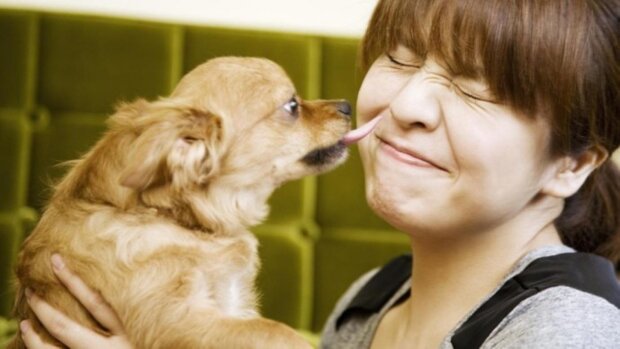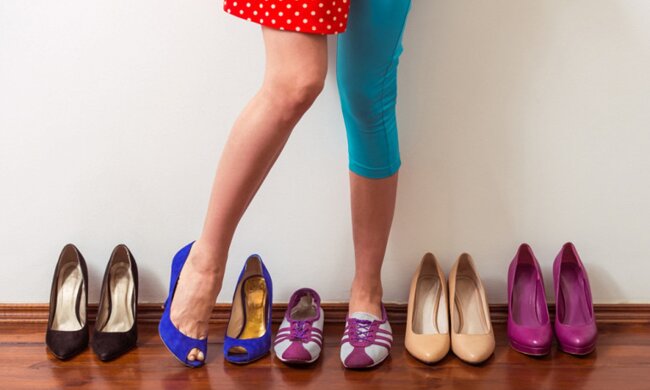Generous slobbery kisses are probably the best reward for dog owners.
At least some of them think so. For others, the prospect of being licked by a dog causes nothing but disgust.
As reported: Fakta.today
Whether you like to kiss your pet or not, let's discuss whether you should let your dog lick you or not.
Why does a dog lick its owner?

Licking is something that a dog learns at birth. Immediately after birth, the mother licks her puppies to clear their airways and help them start breathing on their own, and the puppies learn to lick their mother.
This instinct persists in a dog throughout its life.
The process of licking produces endorphins that give them feelings of happiness and help relieve stress, so some animals begin to lick their owners persistently when they feel anxious. In a pack of dogs, licking serves as a sign of submission to dominant members of the pack.
However, licking a human is usually a sign of affection, but sometimes your dog just likes your "taste".
Is dog kissing safe?

The myth that a dog's mouth is cleaner than a human's and that its saliva has a healing effect has finally been debunked.
Given that they occasionally eat feces and lick their own genitals, one could say that a dog's mouth is actually a "kingdom" of disease-causing microorganisms.
However, although dangerous bacteria such as Salmonella and E. coli, as well as parasites such as Giardia and Cryptosporidium, are present in animal saliva, their numbers are usually not large enough to pose a threat to humans, and there is very little evidence that these pathogens are transmitted through dog kissing.
When is dog kissing dangerous?

Although for most people the risk of infection from contact with dog saliva is extremely low, for some people, pet saliva is very dangerous.
We note that people in the following categories should avoid such close contact with their furry friend:
Children.
Pregnant women.
Elderly people.
People with acne and other skin abnormalities, open wounds, and scratches on their faces.
People with lesions of the nervous system, including those undergoing chemotherapy, people with AIDS or diabetes, or those who have just recovered from an illness.
Reducing the risk

You can reduce the risk of infection from licking by being a responsible pet owner.
Regular veterinary checks, stool tests, deworming, and ectoparasite prevention can significantly reduce the chances of your pet getting infected.
Proper disposal of dog feces and thorough hand washing significantly reduces the risk of disease transmission.
In addition, it is important to carefully prepare food for pets.
Never serve raw food, which could be a source of bacterial infection, such as meat or pig ears, which dogs like to chew on.
Choose mainly balanced food with a composition specifically tailored to the health of your dog.
You should also regularly clean your pet's teeth to maintain oral health and prevent bacterial growth.
Stop "kissing" your dog

Maybe it's not dangerous to let your pet lick your face and lips, but if you don't want to risk it, it's best to stop this behavior at the root.
Dog training instructors say the best way to teach your dog not to kiss is to stand up and walk away, and completely ignore the unwanted behavior every time.
This deprives the dog of the encouragement it received in response to the kiss, and gradually stops trying to behave in this way.
If you enjoy exchanging kisses with your pet, you should probably do so only when your immune system is in perfect condition.
And if the mere thought of your four-legged friend licking you makes you run for antibacterial soap.
Read more: "As soon as it thaws, it loses its properties": Foods you should not freeze
As we wrote earlier: Quick recipe for cherry cake: when you want a tasty treat but don't want to stand by the stove





































